Keeping a journal is a well-known method to better understand your emotions and improve your overall well-being. In addition to embracing positive experiences, journaling can also help ease any negative thoughts you may be having through challenging times.
Journaling is a great confidence booster, and when done in a certain way, it can reshape your perceptions and misbeliefs that may have been holding you back. Here's a list of techniques you can use in your journaling practice to enhance your self-awareness and help you make the most of life.
1. Focus on the Positive in Your Journal
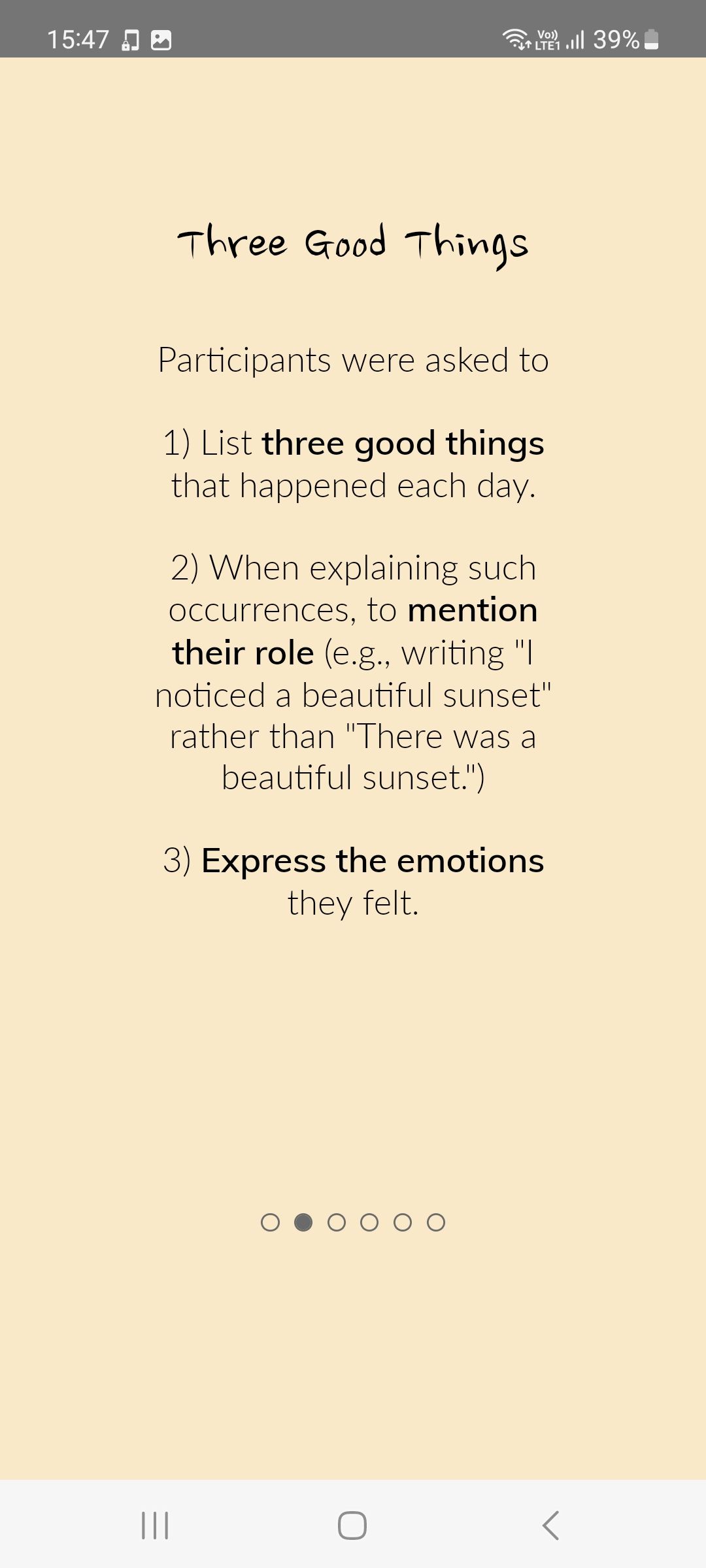
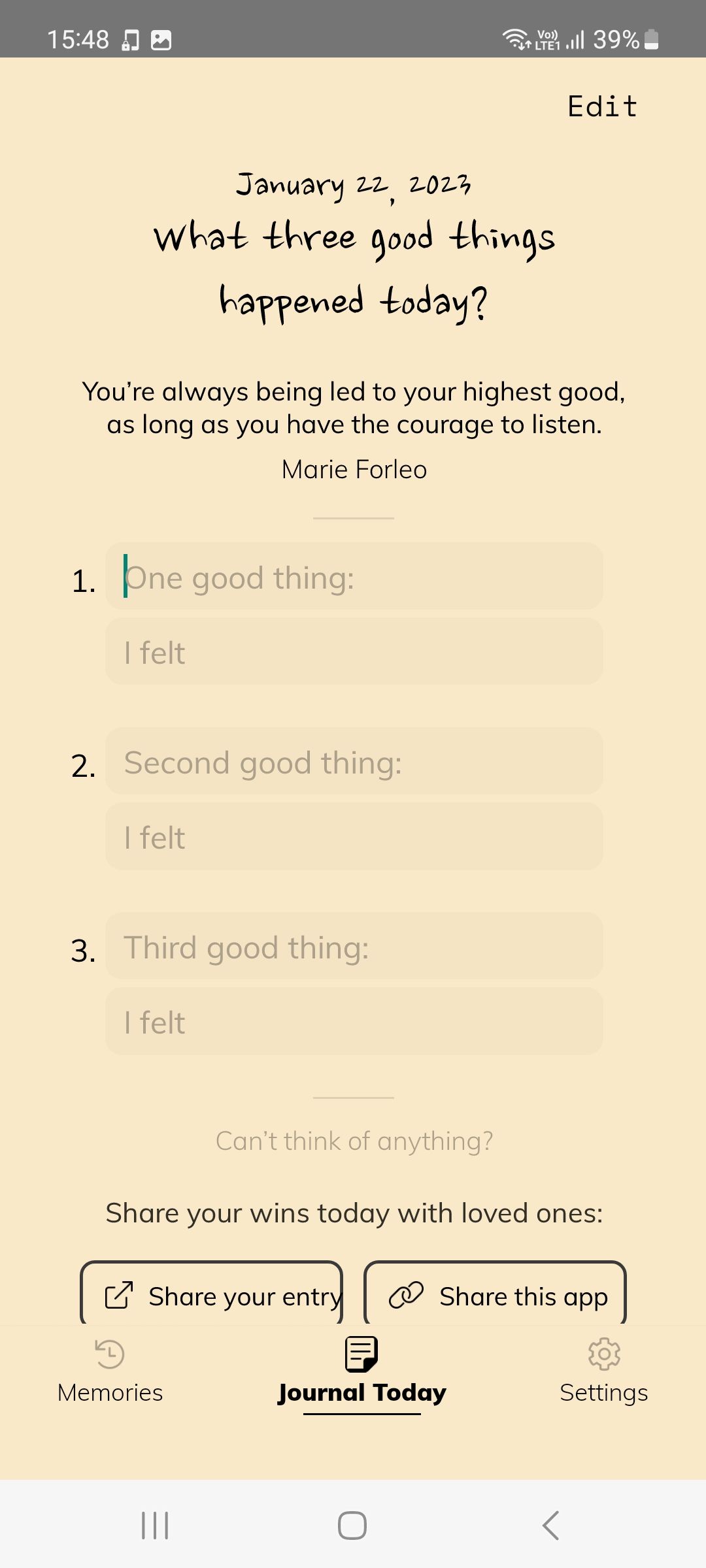
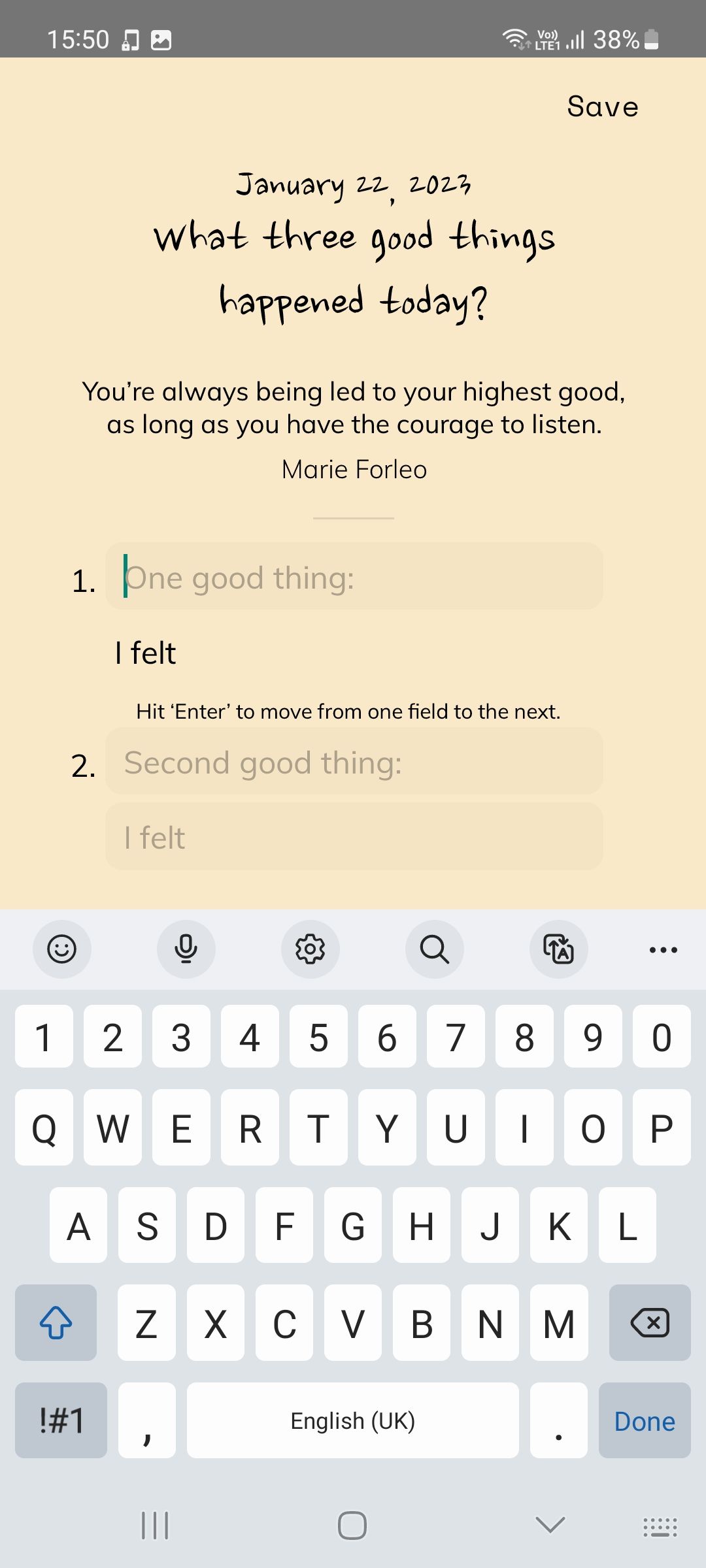
Sometimes it can be difficult after a bad day to find positive things to write about. Especially if you’re feeling in a low mood, it feels quite natural and easy to write down everything that went wrong. Unfortunately, this only worsens the problem.
Three Good Things is a minimalist app that will help draw your attention to the positive elements of your day. This app provides a simple template to write down three good things that happened today. For the most special moments, you can choose to save entries as a PDF.
Writing positive things down helps to emphasize them in your mind and the outside world. The brain can’t remember everything. But through this practice, you reiterate the good moments in your life, whether big or small, instead of letting them fade.
Download: Three Good Things for Android | iOS (Free, premium version available)
2. Use the Principle: “It Could Be Worse”
If you’re dealing with stress, this can dramatize situations and blow up little problems into unnecessarily big things in your headspace. Using this principle allows you to reinterpret past negative events and see that they aren’t so bad after all, especially in comparison to how they could be.
If you have dealt with an unpleasant experience during the day, telling yourself “it could be worse” after writing it down in your journal will help reframe your vision of the event. It will open your eyes to a new perspective where you realize that all is not lost.
You can apply this technique in journaling apps with integrated mood trackers like Daylio. Next time you mark down a negative mood, instead of feeding your ego and reaffirming how terribly things have gone, present yourself with this prompt to shine a light on the situation.
Download: Daylio for Android | iOS (Free, premium version available)
3. Ask Yourself Reflective Questions
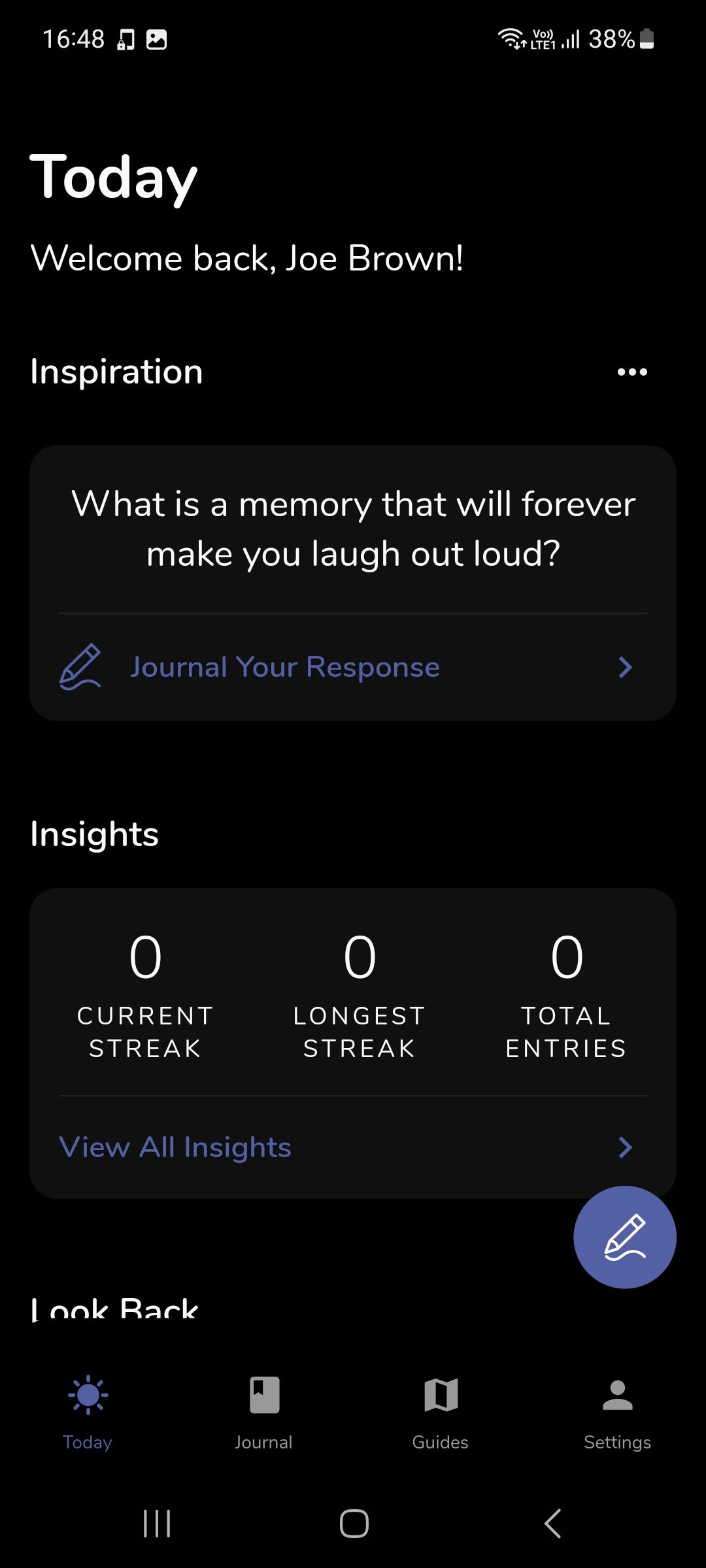
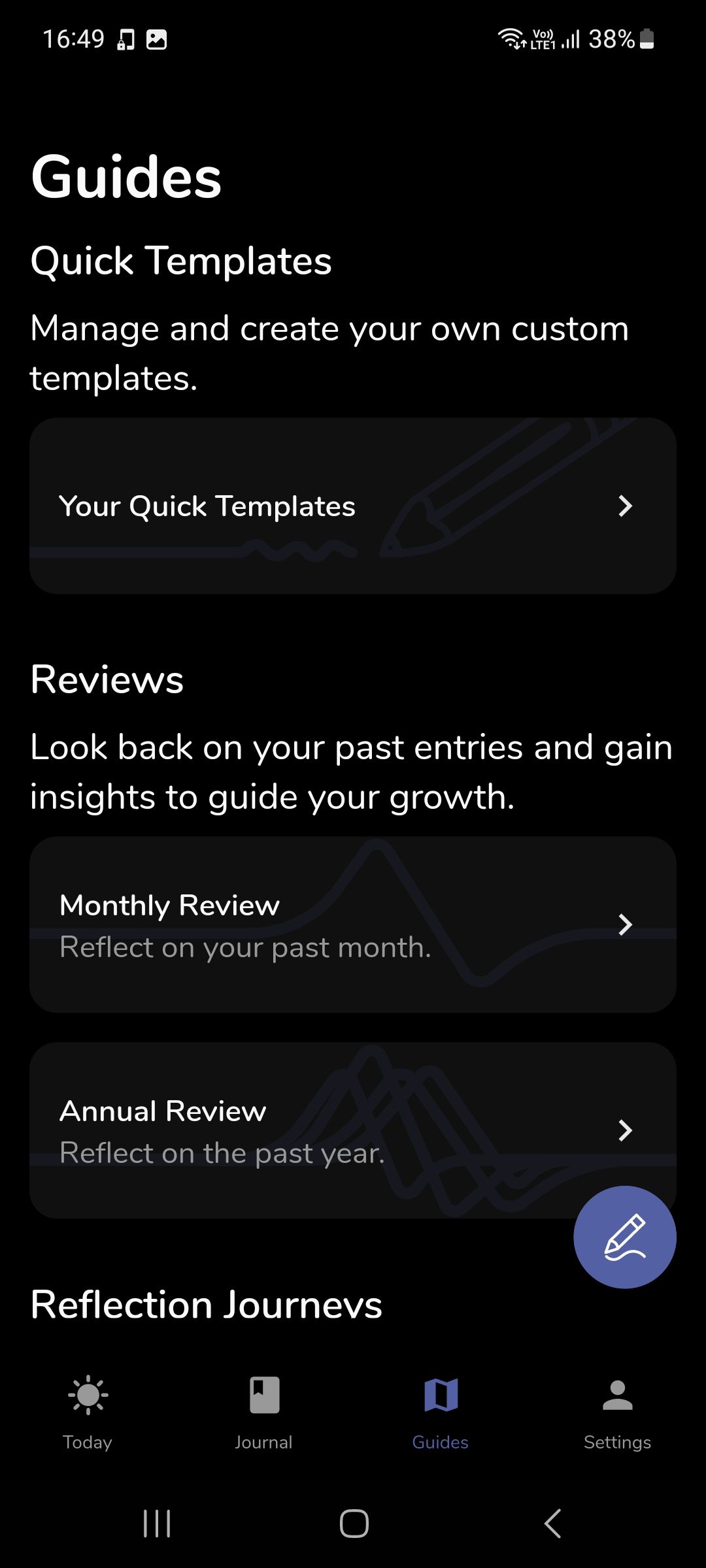

Many journaling apps on the market simply focus on the idea of writing down parts of the day that made you feel grateful. Asking yourself questions, however, adds an extra layer of depth to your journaling to help you relive your happiest moments.
Reflection.app is a great tool that allows you to create your own questions or edit preexisting ones. You’ll find this feature by tapping on Your Quick Templates under the Guides tab. There are many styles of questions you may wish to use as a template:
- Who made me smile today?
- What was a great experience you recently had with friends?
- What small element of my day pleasantly surprised me?
Creating a vivid mental picture of the happy experience you’re writing about will help you create a clear journal entry. It will also make the writing process effortless. You may find that listening to some ambient sounds online while journaling will help you to relive the memorable experience.
Asking questions in your journaling practice will give your entries more detail and clarity. They will help to trigger positive emotions to emphasize the good elements in your life.
Download: Reflection.app for Android | iOS (Free, premium version available)
4. Use Prompts to Get a Head Start
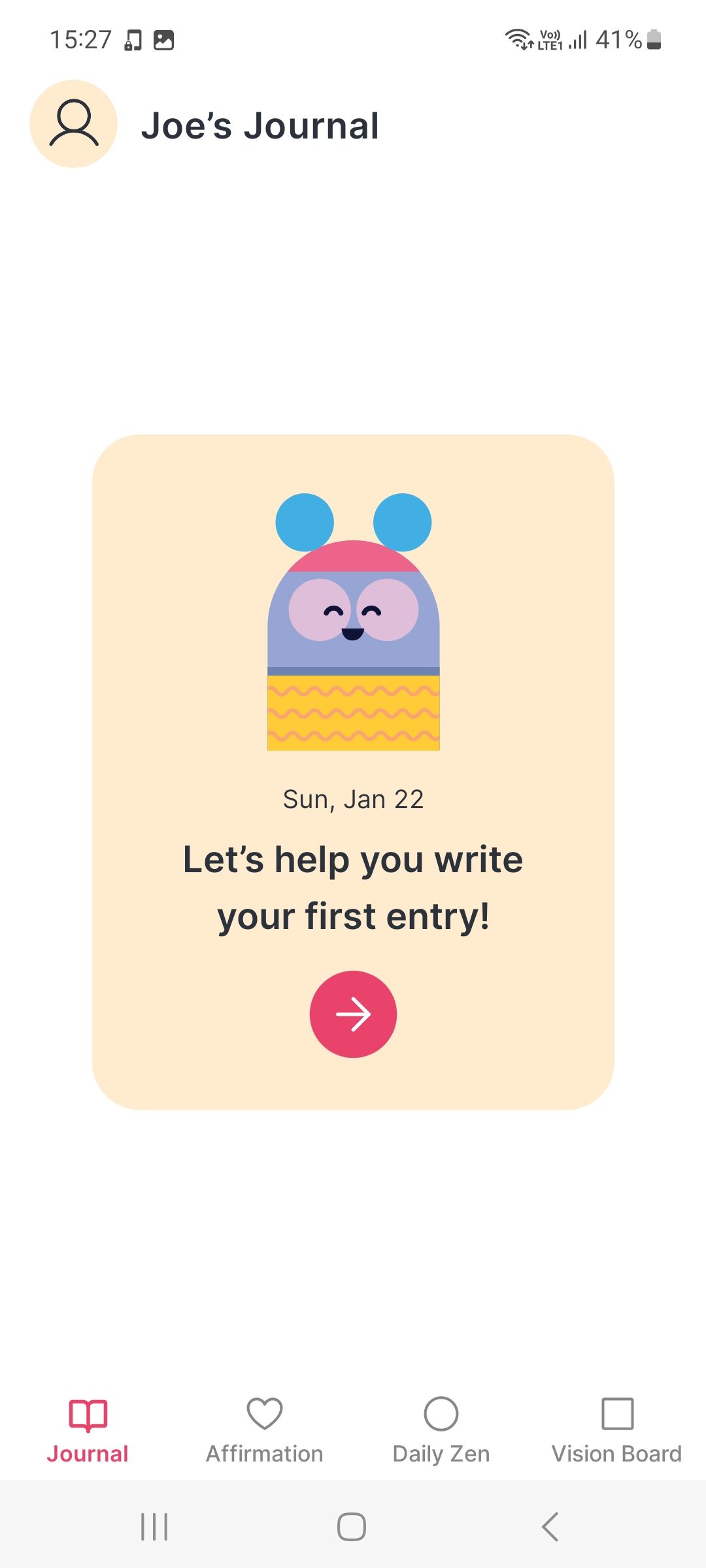
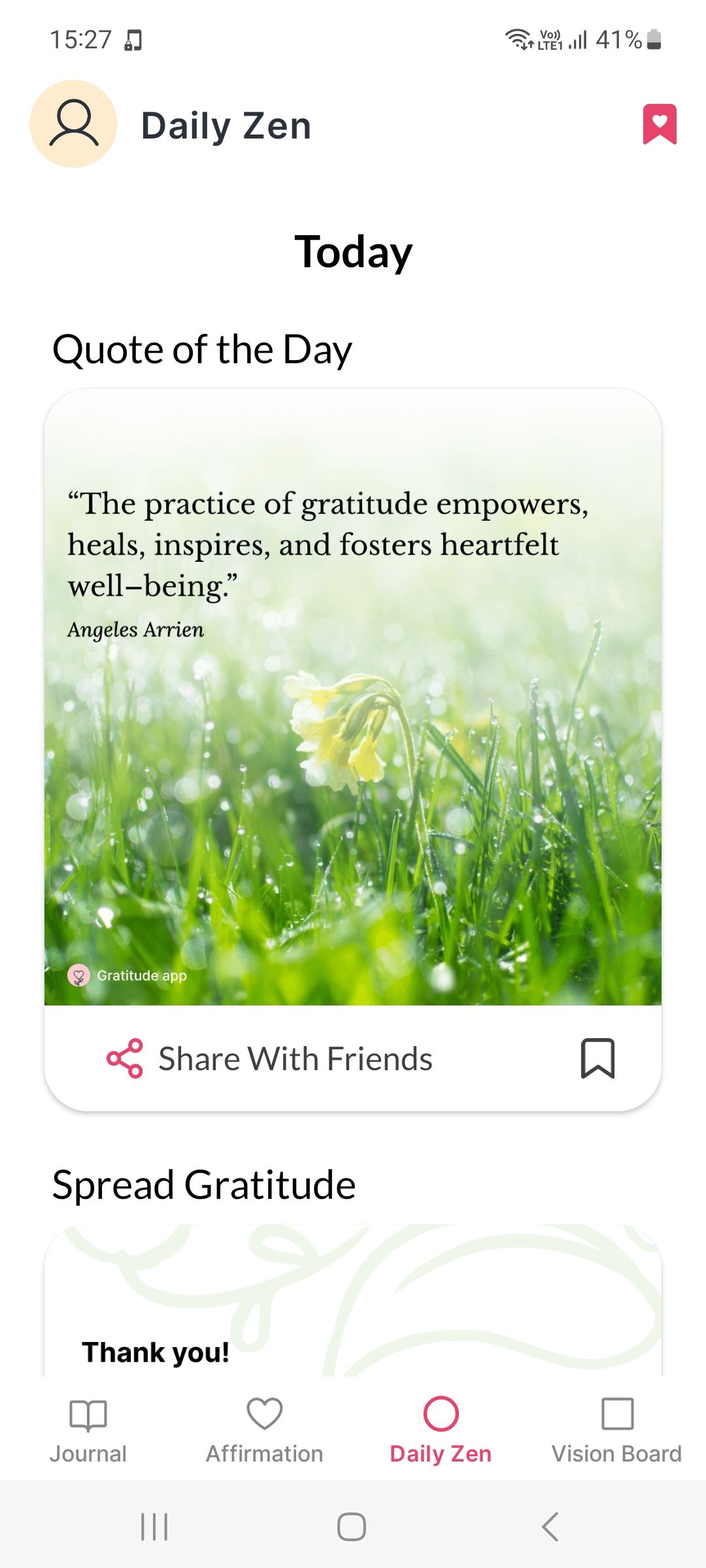
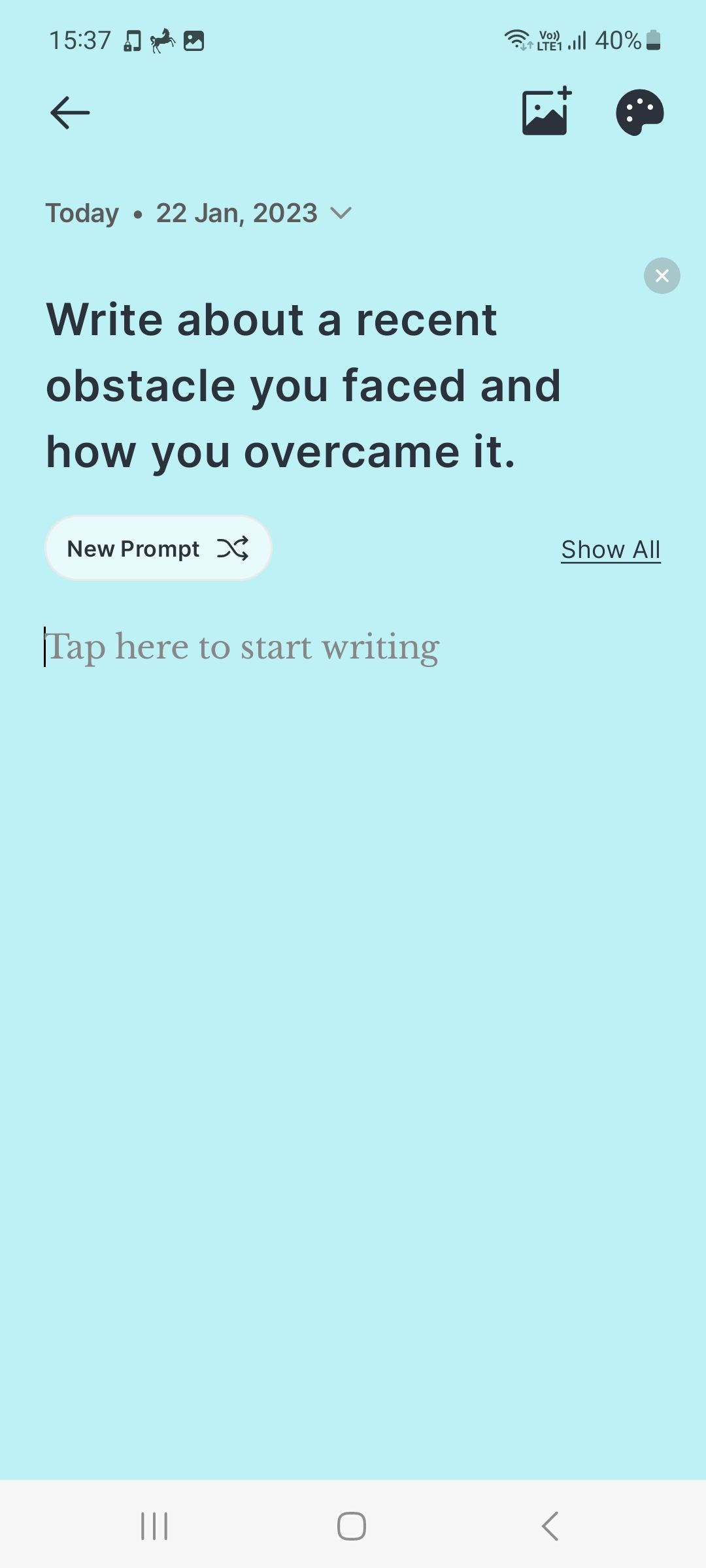
When practicing journaling for the first time, it can be hard to get positive emotions going. It’s important to note that the beneficial results of journaling won’t happen instantly. However, prompts are a useful tool that will help you overcome this initial brainstorming process.
Gratitude: Self-Care Journal offers an insightful range of prompts designed to open a wider perspective for you to reflect on your life. Many of these focus on where you are right now in life, what’s working for you at the moment, and what you aim to achieve.
If you don’t like a prompt, you can easily get a new one by tapping the New prompt option. Another feature that helps widen your perspective is the Daily Zen tab where you’ll find a range of philosophical and motivating quotes. These act as great sources of inspiration that you can apply to your own journaling process as you write down your experiences.
Download: Gratitude: Self-Care Journal for Android | iOS (Free, subscription available)
5. Use Affirmations in Your Journaling Practice
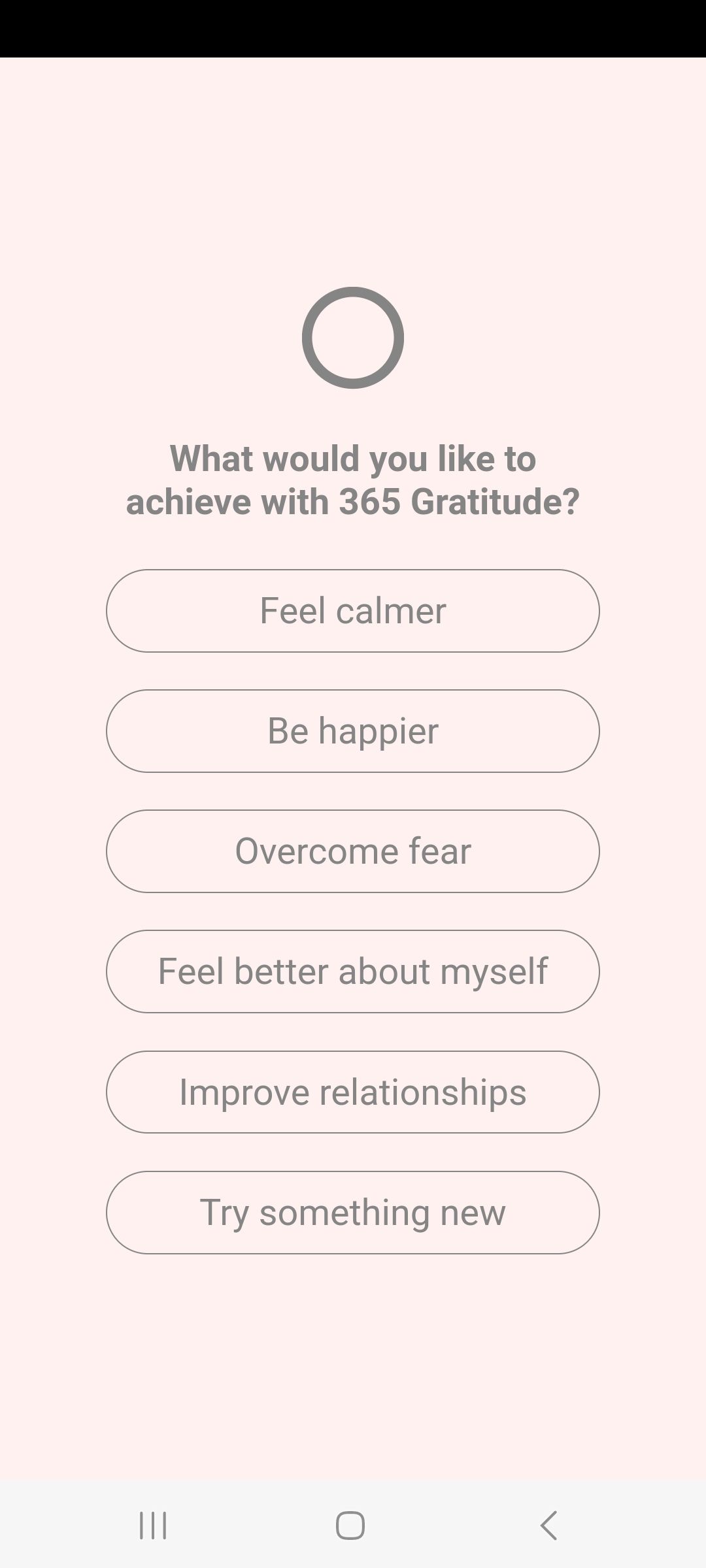
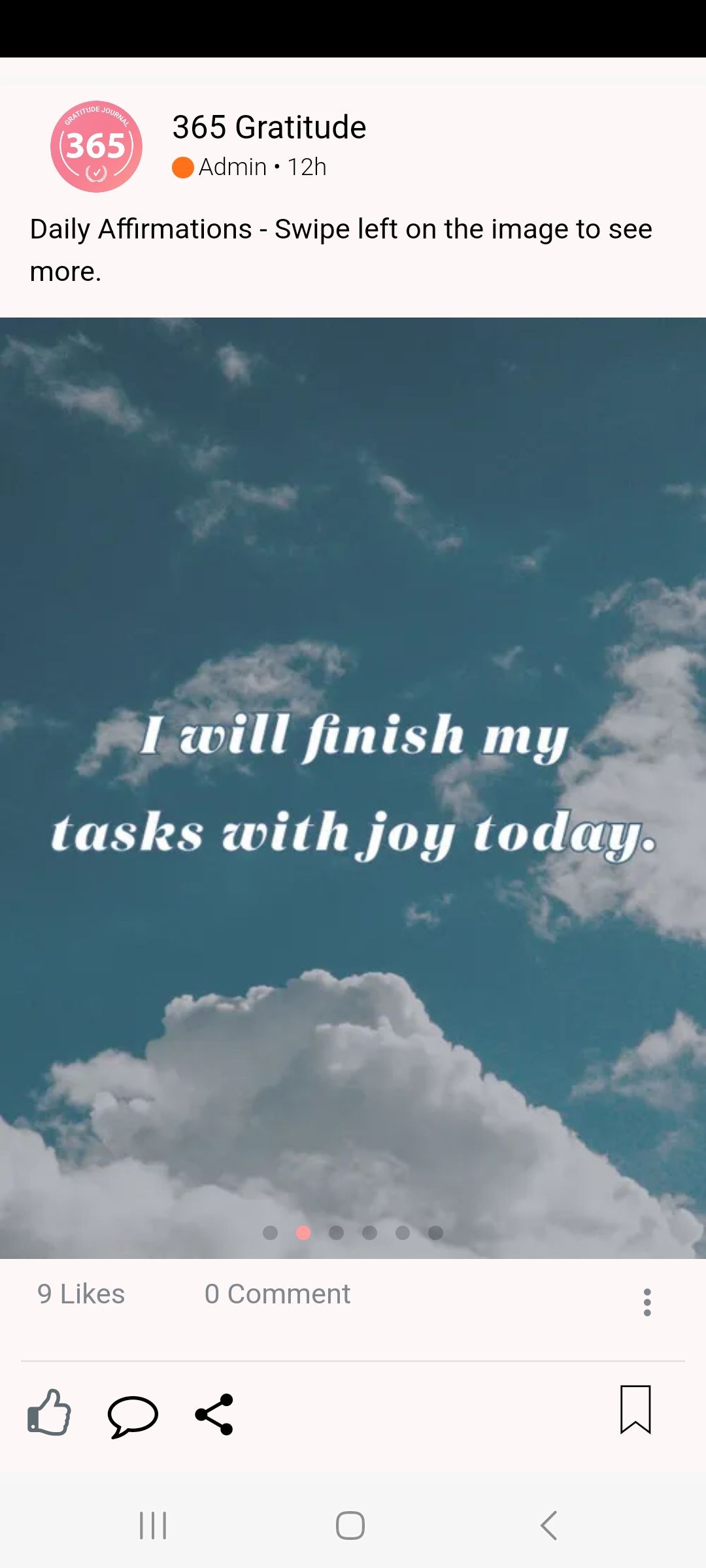
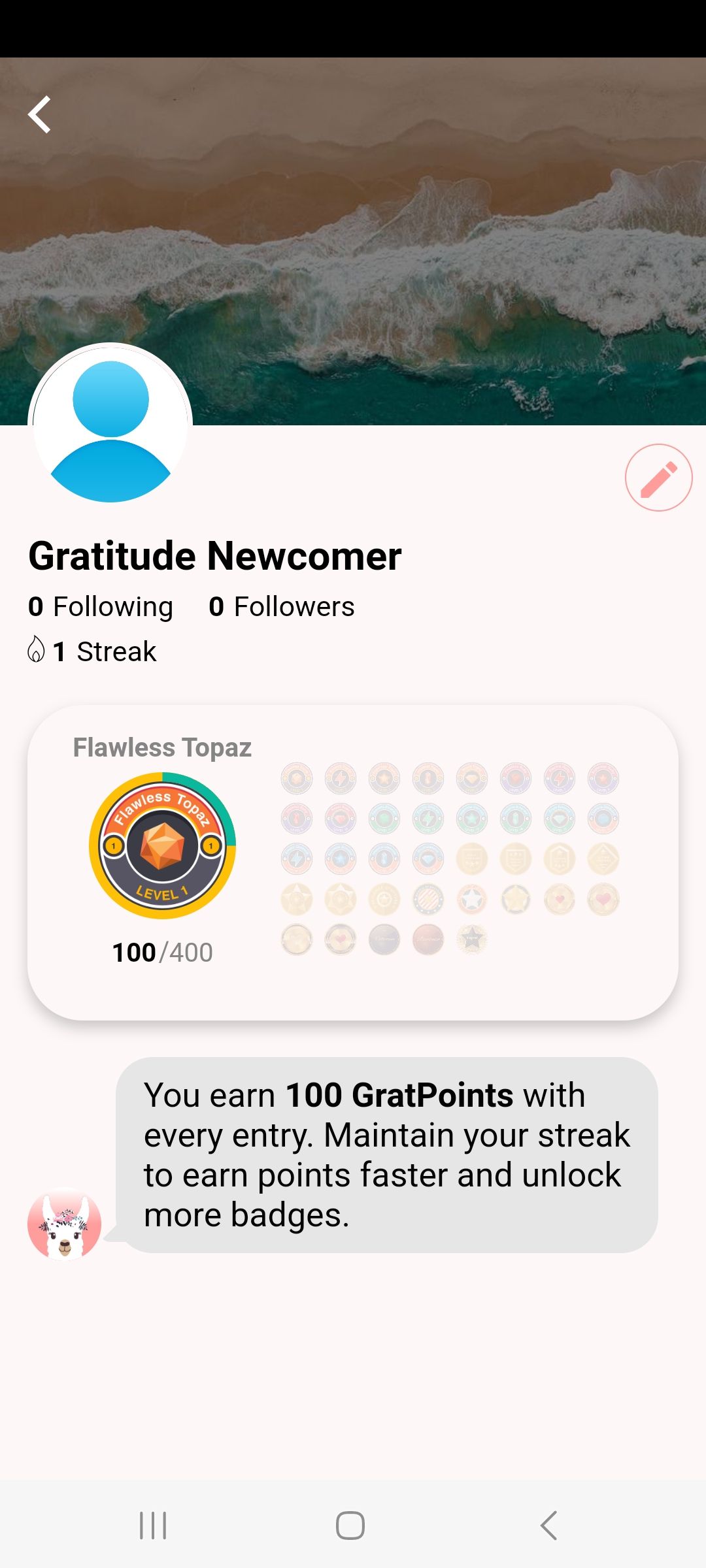
Affirmations are great for believing in yourself if you’re experiencing self-doubt. They can help reaffirm the good elements of your life while highlighting areas you want to improve in.
365 Gratitude Journal is a comprehensive journaling app with a unique selection of features to aid your journaling process. When signing up, you can choose from a list of intentions to signify what area you’d like to grow in the most. The app will then personalize your experience according to your goals.
You’ll find a range of affirmations in the Categories tab. Here, you can favorite any affirmations that stand out to you and set up repeating reminders to sustain positive energy throughout the day. Regularly tuning in with a positive mindset in this way will make journaling an easier process by giving your mind more positive things to think about.
Download: 365 Gratitude Journal for Android | iOS (Free, subscription available)
6. Apply Cognitive Behavioral Therapy Techniques
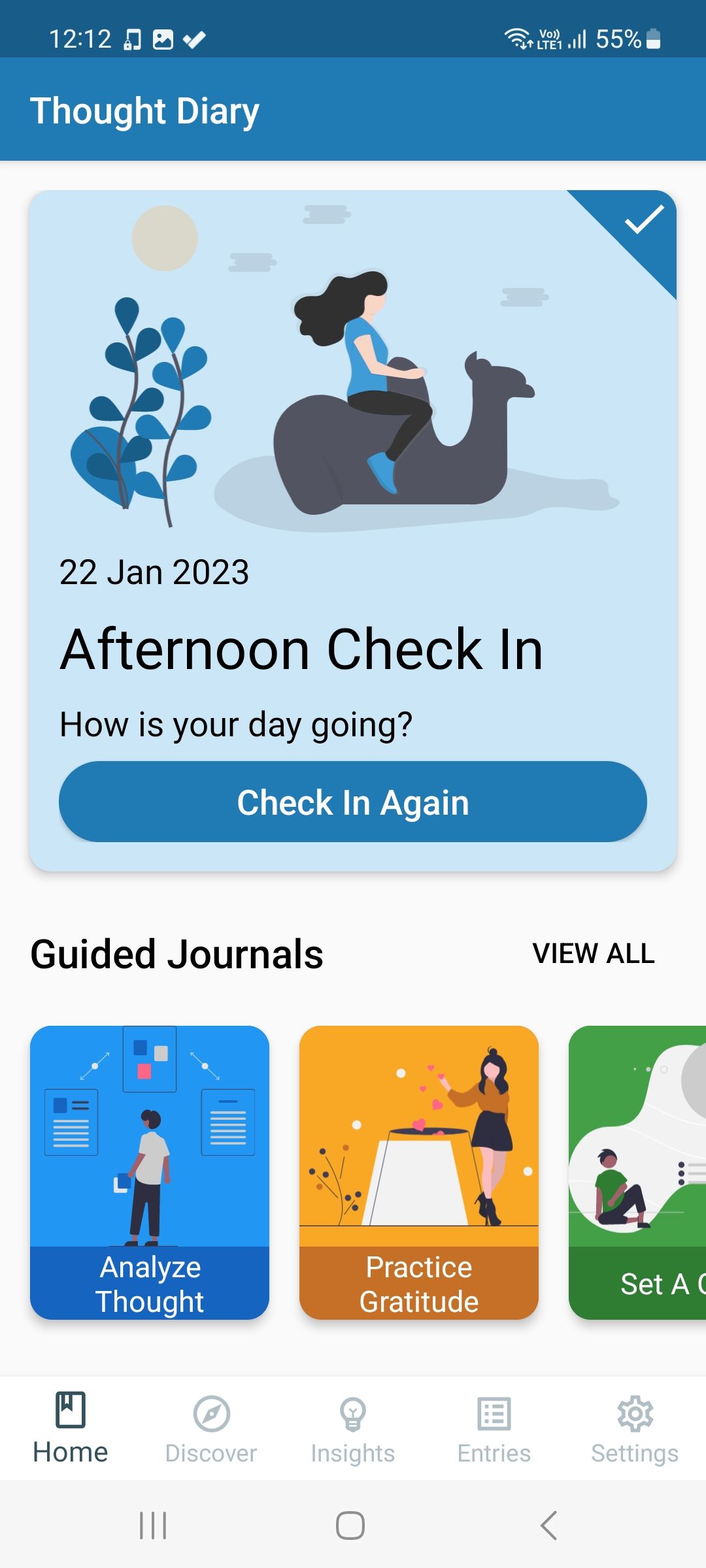
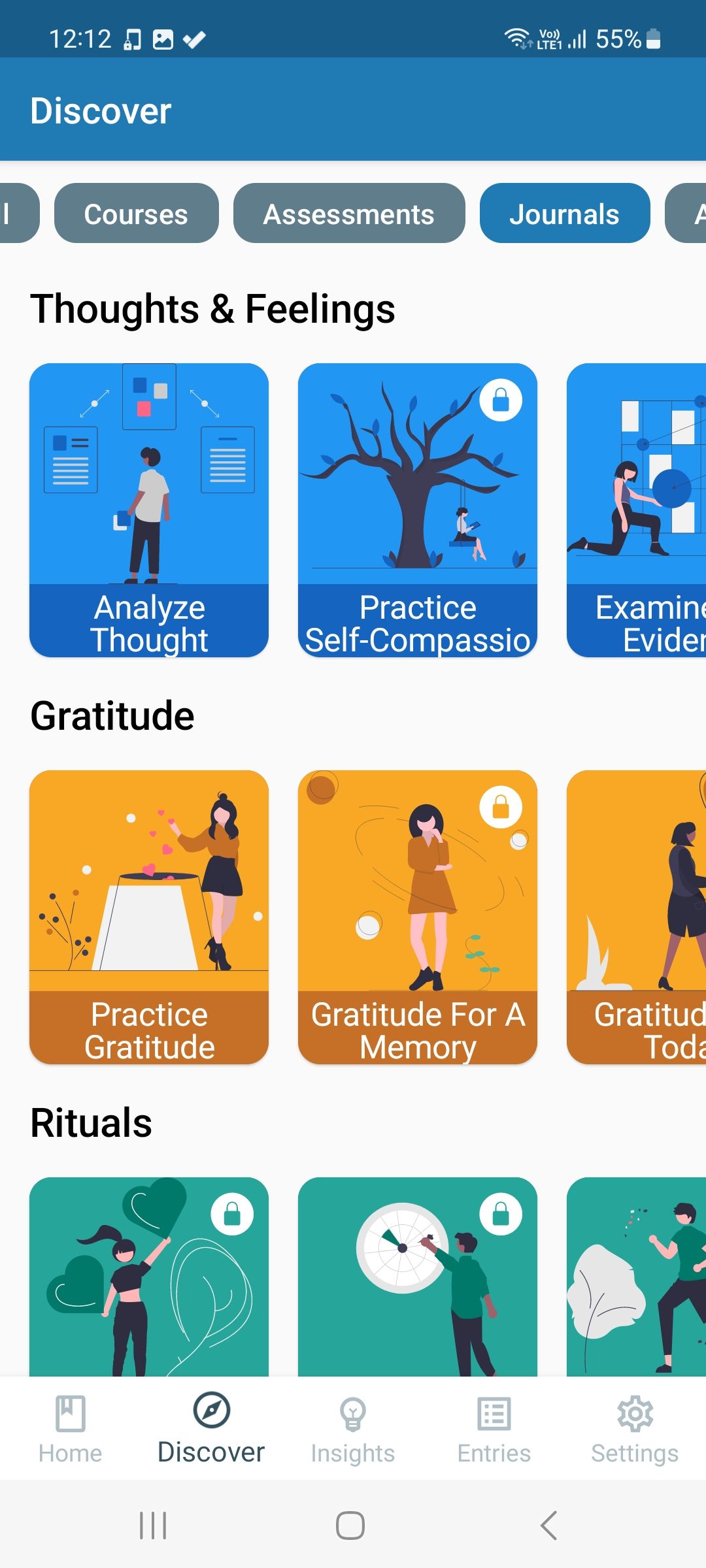
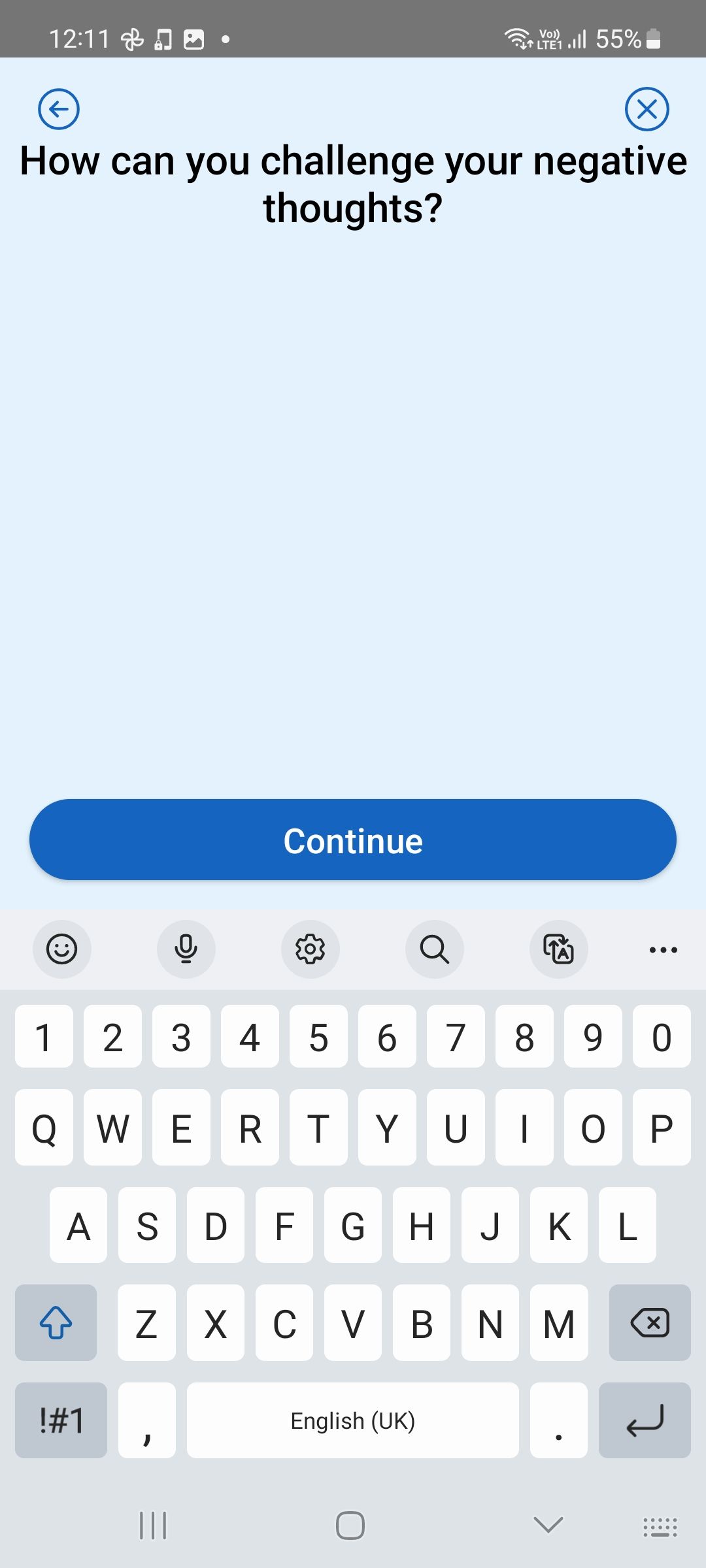
Cognitive Behavioral Therapy (CBT) consists of a range of scientifically-proven strategies that will aid your journaling process. CBT Thought Diary fuses science with journaling so that you can change your thought patterns and improve your mental health.
The Discover tab includes a range of mini courses on CBT principles such as automatic thoughts and catastrophizing. The Journals tab also offers a range of exercises that apply CBT techniques directly to your journaling process.
You can easily measure your progress in the Entries tab and view past journal entries. This gives you a clear idea of your emotions over time by displaying the feelings you were experiencing and the activities you were doing at that time.
Download: CBT Thought Diary for Android | iOS (Free, premium version available)
Rewire Your Brain and Feel Happier With These Gratitude Journaling Techniques
Digital gratitude journaling is a skill that requires time and effort to master. Like all other skills, the positive benefits won't occur straight away. These techniques give you a great starting point on your journey to improve your mental health. Apply them to regain a positive connection with yourself so that you can enjoy life fully.


